W* talk to Rolls-Royce chief executive
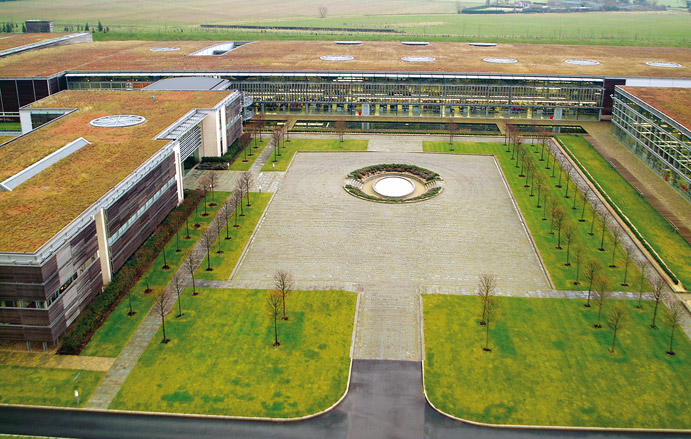
The world of Rolls Royce is blissfully removed from the realities of regular life. Over 85 per cent of production is strictly made-to-measure, cars that are painstakingly hand-built by skilled craftsmen and women at the company's ecologically sensitive Goodwood manufacturing site, designed by Nicholas Grimshaw in 2003 to blend into the idyllic West Sussex countryside (and recently, sensitively, extended).
On the day of our visit a hazy summer light engulfs this picture perfect setting, complete with smart villages and lush rolling green hills, dotted with healthy-looking cattle protecting their young offspring. The urban jungle we left behind couldn't be further away, and the image of Rolls-Royce as a beacon of traditional British values is helpfully reinforced, not least for the many foreign buyers who make the trip to Goodwood.
We are here for a tour of this modest facility, to meet the crafts people in the wood workshop and the specialist technicians in the leather department. Most customers, or 'clients', as they are referred to by RR, visit Goodwood personally and following consultation with the bespoke designers on site, follow the journey of their car from concept to production.
We are also here to meet with Rolls-Royce's chief executive officer, Torsten Müller-Ötvös, who joined the marque from parent company BMW just over a year ago. Müller-Ötvös has worked within BMW AG for almost 20 years and was one of those responsible for re-launching the MINI brand back at the turn of the century
Rolls Royce saw a record year in 2010. Do you see this growth being sustained?
Last year we saw 170 per cent growth compared to 2009 - this is not a number we could duplicate this year. We launched the Ghost last year, expanded our dealer network, and speeded up the organisation. This year I see more of a sustainable growth.
Also, it is very hard to predict this segment as it relies on consumer sentiment. You see Rolls Royce cars are not purchased like other cars, but more like a luxury good -- a precious watch, a yacht or a family home.
Wallpaper* Newsletter
Receive our daily digest of inspiration, escapism and design stories from around the world direct to your inbox.
Which markets are you eyeing up?
Asia has been one of our biggest growth areas and we have extended our dealer network there. We still see nice growth in the United States and the Middle East is doing fabulously since it came out of its recent crisis. Russia too saw some decline but now it is back on plan.
The Ghost is a smaller, more affordable Rolls Royce and most importantly more of a driver's car as opposed to the typically chauffer-driven Phantom. Are you attracting new customers to the marque with this car?
The Ghost is 80 per cent new conquests - customers we've never seen before. They are coming from the top [specification] Mercedes S-Class or other luxurious cars. These are customers who can afford a Rolls Royce but admit that the Phantom isn't their cup of coffee because they are mainly self-drivers.
Bentley has had phenomenal success with the Continental GT. Do you have similar model plans for the Ghost?
Be assured that we're doing a lot of thinking and we would be mad not to do some derivatives out of the Ghost. We recently launched the extended wheelbase and this wasn't just for the Asian markets, but also for the United States.
How easy is it for you to add another model derivative to the line-up?
Due to the way we build our cars, which is very much hand built, we don't have to rely so much on making a second [production] line - it is more related to workforce and space. We are quite flexible here and we have more or less tripled our output in one year.
How far are you willing to expand the model range?
To make it very clear, our intention is not to go into Bentley production numbers -- not at all. Rolls Royce needs to remain highly, highly exclusive and we certainly don't want see a Rolls Royce at every single street corner. These cars are so rare that they are perceived as being very special.
Do you feel there is ever a place for a small Rolls Royce -- a city run-around?
I wouldn't say a smaller one than the Ghost. With Rolls Royce you're linked to ample space and a relaxed comfortable environment. If you shrink the car it will immediately impact on how people sit and feel in these cars.
Would you consider a car that sits above the flagship Phantom?
We wouldn't make a car that is more exclusive or more expensive than the Phantom. You can easily spec up these cars to £1m.
You recently reported your youngest customer, a 24 year old from India. Are you actively trying to attract younger buyers especially with the Ghost?
We are working to speak with younger people through Facebook and iPhone apps such as our Phantom Configurator, not to attract them necessarily to the brand but to keep it relevant and to tell our story.
Your production methods are incredibly labour intensive and rely on very skilled craftsmanship from the wood shop to the leather technicians. Is this something you can ever sacrifice?
Rolls Royce employs close to 1,000 employees worldwide. This gives you an indication of how efficiently we're building cars when you compare it to say the number of employees at [Bentley HQ] Crewe. I would never sacrifice the workmanship.
How does this feed into the products?
Every car has to be bespoke and unique, and have the fingerprints of the customer. You could never achieve this with a fully automated factory -- no way. We always say there are 60 pairs of hands that work on each car from start to finish to make sure they are immaculate.
You need the passion of the people -- this is what drives the quality in the end. Talk to the guys and you will see how they love the cars and care for the results. Some of them are passing on their unique skills to their children and we're developing our own apprenticeship programme here.
Is there an experience from your time at MINI and the rebirth of the brand that you can bring to Rolls Royce?
What I have taken from MINI is how important it is to stick to the brand authenticity. When I joined this company for two months I threw myself fully into the cars, the manufacturing, spending time on the factory floor.
Can anyone with money buy a Rolls Royce or will Rolls Royce start selecting its customers?
We sold 2,700 cars last year - that is very little in the real world. I call it a precious drop in the sea of automotive business. We never have to worry about exclusivity.
How would you describe your customers?
They vary. We have a customer in the US who buys a new Rolls Royce every year, very exclusive ones that are always a challenge for us to make. Some of our buyers don't sell their cars on -- many of them are collectors.
You've recently launched the 102EX electric test car that is not only driven by an alternative powertrain, but inside you've used old leather for the seats and recycled wood for a new message. Do you feel this is the right environmental answer for Rolls Royce?
We are exploring the customers and the technology with this car and so far, I have to admit, we are getting an ambivalent feedback from our customers who have had a chance to drive this car.
Why do you feel this has been the case?
It is the engineering precision that is symbolised by the 12-cylinder engine itself that for many people symbolises Rolls Royce. They say if you take the engine out something is missing. Others are saying, nice idea but the range at 120km is not satisfying and the 8-hour battery charging time is too long. Some say [with the silent electric engine] there is too much road noise. Anyway it is early days as the car is being tested worldwide.
So how do you see Rolls Royce looking at sustainability?
We have cut emissions on all our cars but our customers love the feel of the drive -- the waftability as we call it. It is a magic carpet ride and for this you need a certain performance. This goes back to the authenticity question -- we don't know the answer until we find a solution that delivers this waftability.
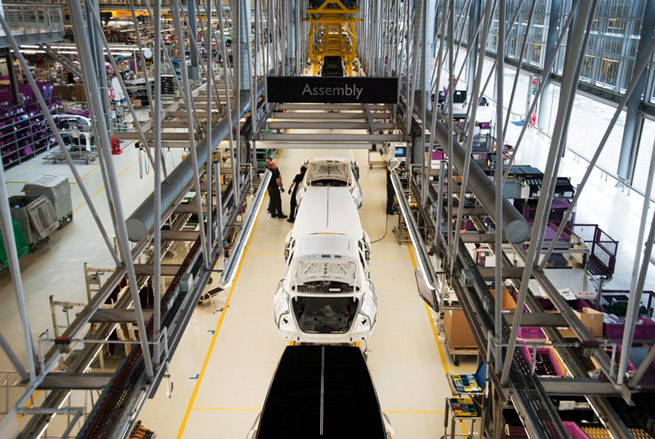
Over 85 per cent of production is strictly made-to-measure, cars that are painstakingly hand-built by skilled craftsmen and women
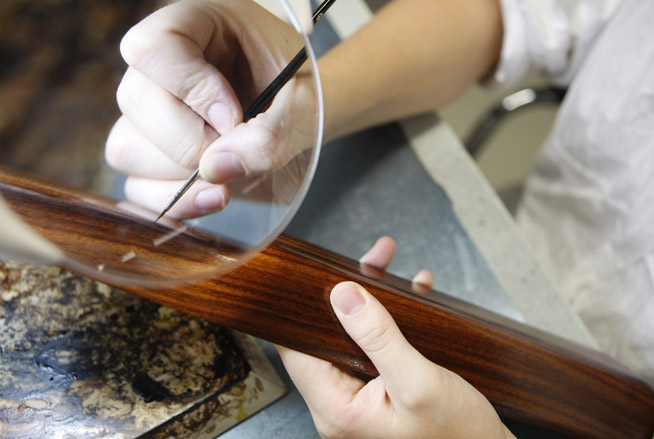
From the craftspeople in the wood workshop...
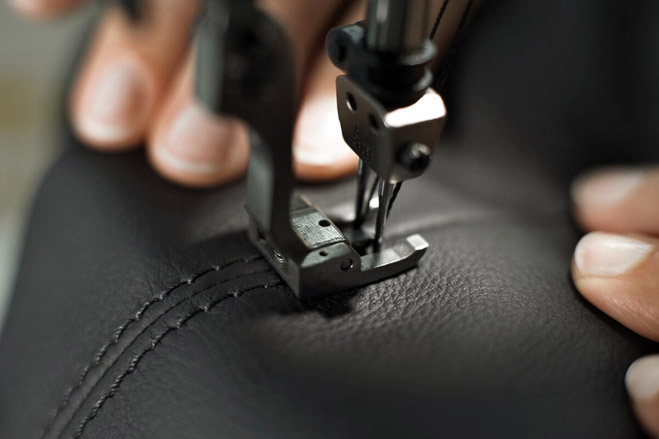
..to the specialist technicians in the leather department
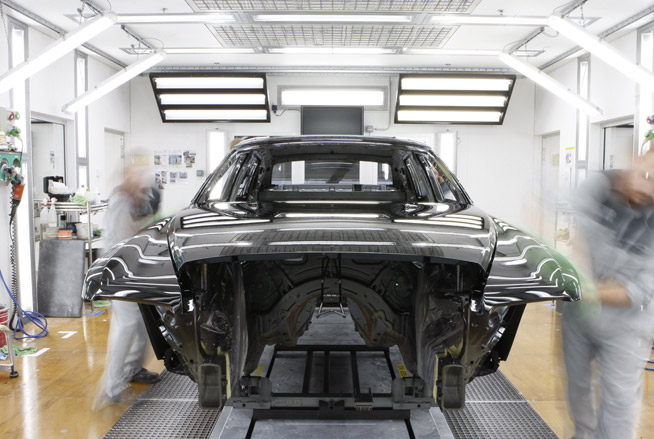
...through to the paintshop
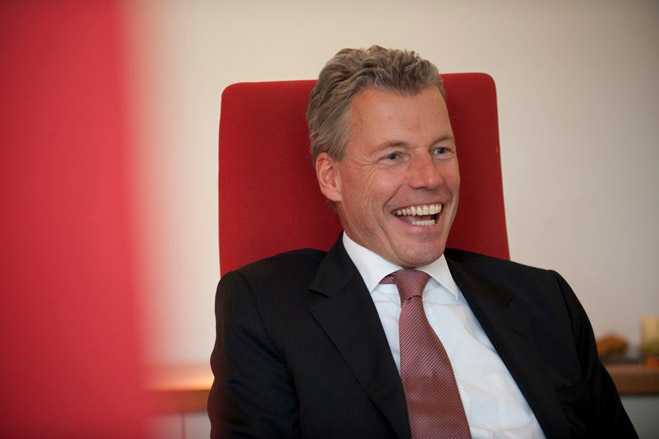
Wallpaper* meet with Rolls Royce's chief executive officer, Torsten Müller-Ötvös, who joined the marque from parent company BMW just over a year ago
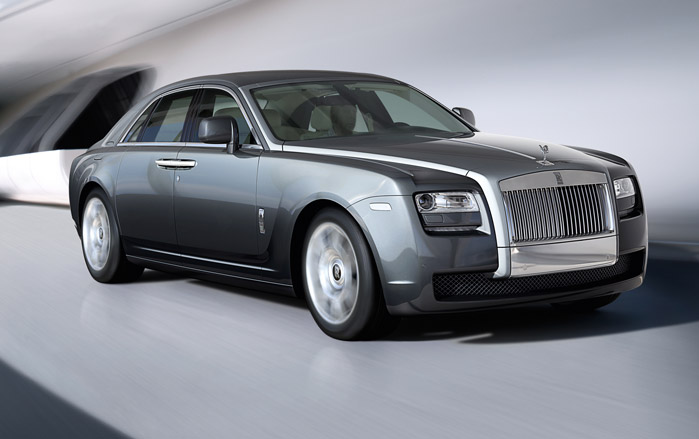
Rolls Royce launched the Ghost last year - a smaller, more affordable Rolls Royce and more of a driver's car as opposed to the typically chauffer-driven Phantom
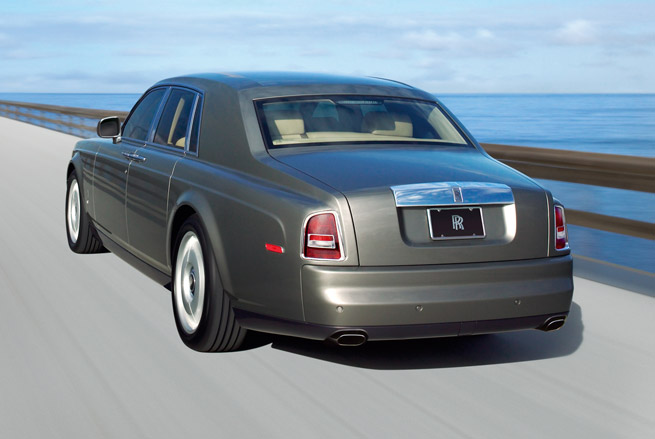
As Müller-Ötvös explains: 'The Ghost is 80 per cent new conquests – customers we've never seen before. They are coming from the top [specification] Mercedes S-Class or other luxurious cars. These are customers who can afford a Rolls Royce but admit that the Phantom isn't their cup of coffee because they are mainly self-drivers
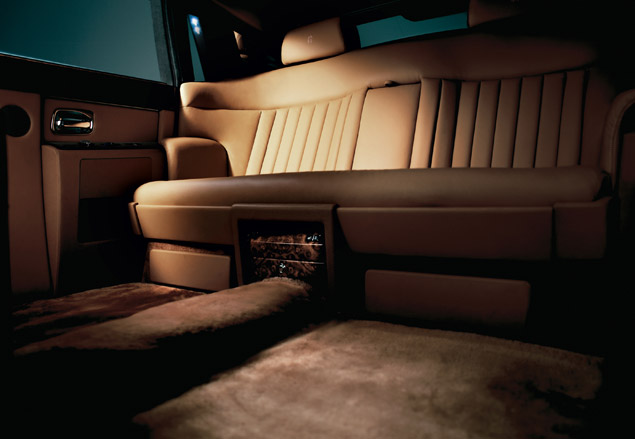
W* Do you feel there is ever a place for a small Rolls Royce – a city run-around?
I wouldn't say a smaller one than the Ghost. With Rolls Royce you're linked to ample space and a relaxed comfortable environment. If you shrink the car it will immediately impact on how people sit and feel in these cars
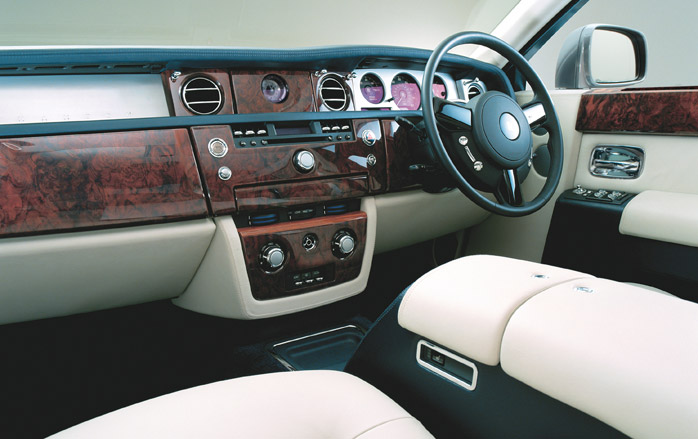
W* How far are you willing to expand the model range?
To make it very clear, our intention is not to go into Bentley production numbers – not at all. Rolls Royce needs to remain highly, highly exclusive and we certainly don't want see a Rolls Royce at every single street corner. These cars are so rare that they are perceived as being very special
A writer and editor based in London, Nargess contributes to various international publications on all aspects of culture. She is editorial director on Voices, a US publication on wine, and has authored a few lifestyle books, including The Life Negroni.
-
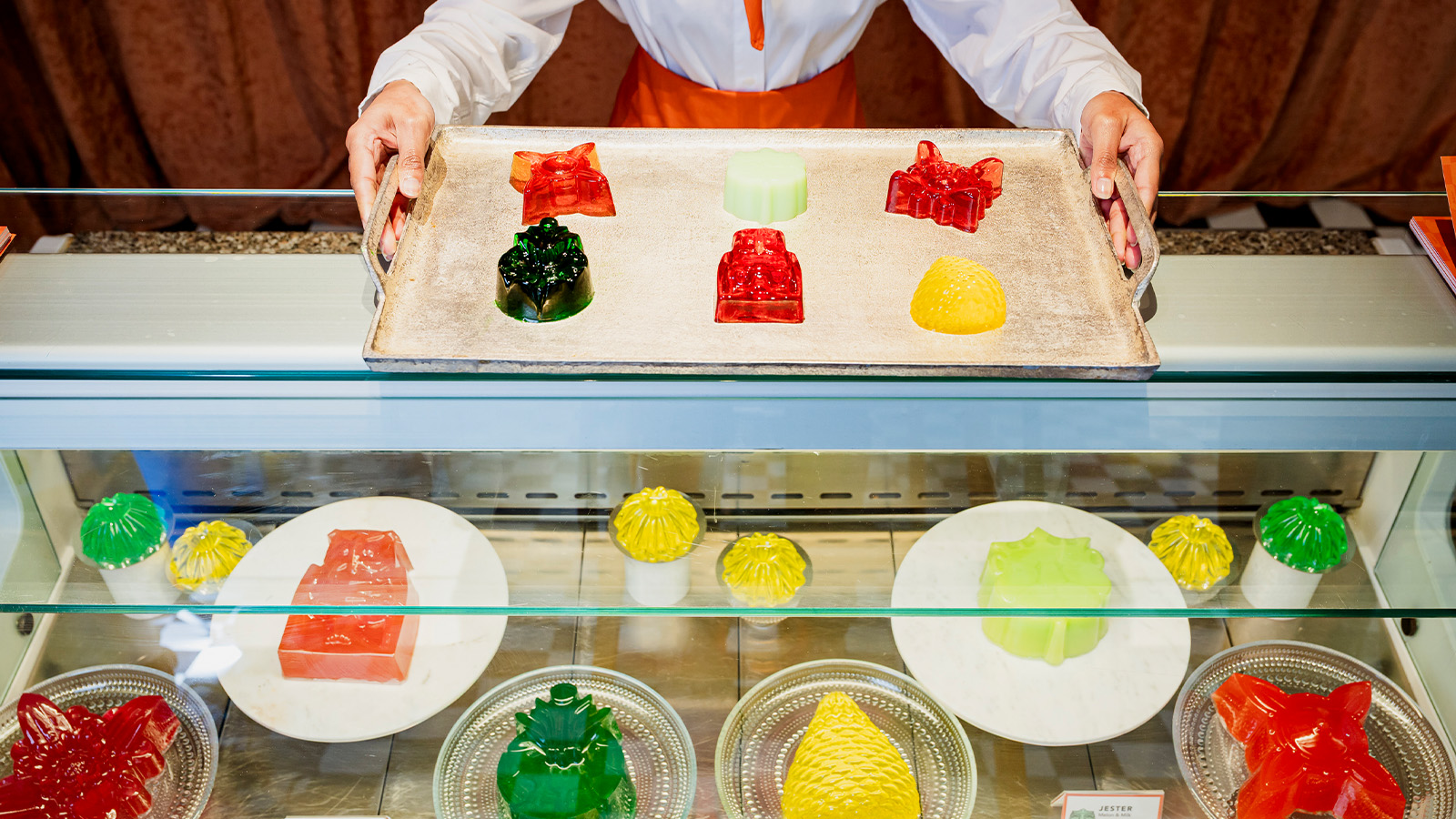 At the Regent Street Sensorium, architectural jelly sculptures are designed to ignite the senses
At the Regent Street Sensorium, architectural jelly sculptures are designed to ignite the sensesDelve into the history of London’s Regent Street through a jellyscape, a fragrance cloud and more – plus, for the event’s final week, two new immersive workshops (ends 27 April)
By Tianna Williams
-
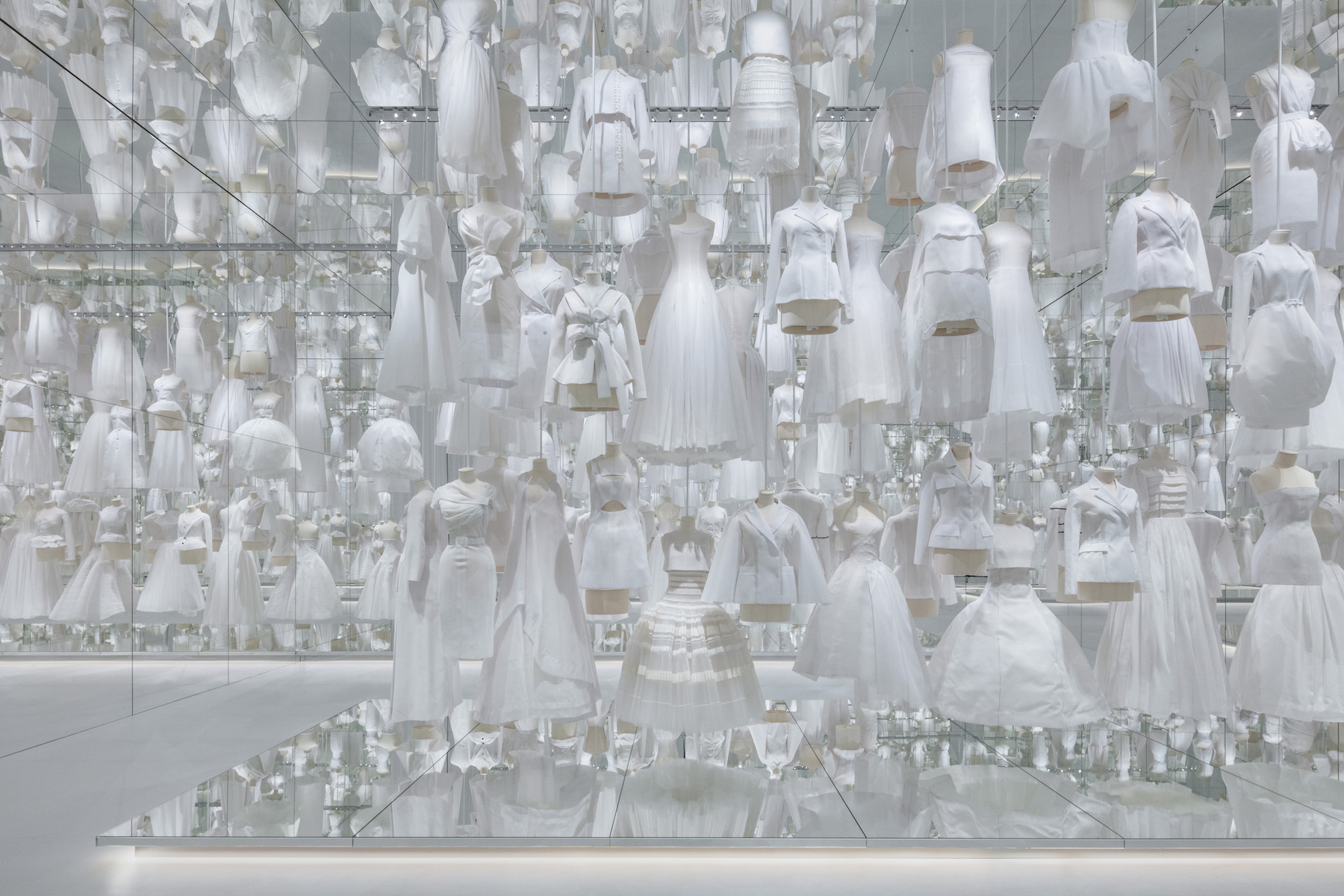 With scenography by OMA, Dior’s ‘Designer of Dreams’ exhibition in Seoul is ‘a piece of theatre’
With scenography by OMA, Dior’s ‘Designer of Dreams’ exhibition in Seoul is ‘a piece of theatre’OMA partner Shohei Shigematsu catches up with Wallpaper* about the dramatic show design for the latest iteration of ‘Christian Dior: Designer of Dreams’, which opened in Seoul this weekend
By Daven Wu
-
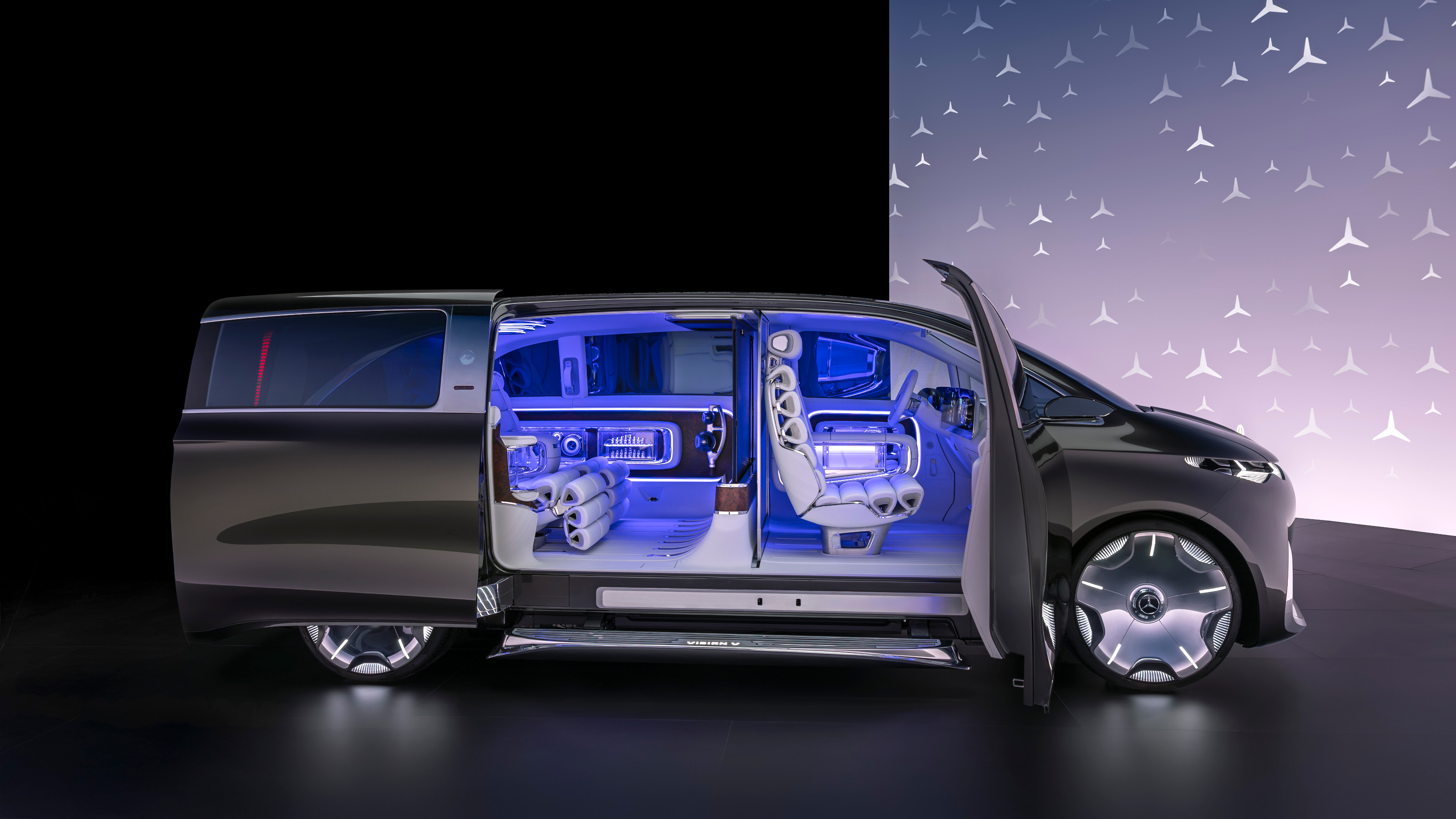 Mercedes-Benz previews its next-gen people mover with an ultra-luxury EV concept
Mercedes-Benz previews its next-gen people mover with an ultra-luxury EV conceptThe Mercedes-Benz Vision V Concept is an art deco picture palace on wheels, designed to immerse passengers in parallel worlds as they travel
By Jonathan Bell
-
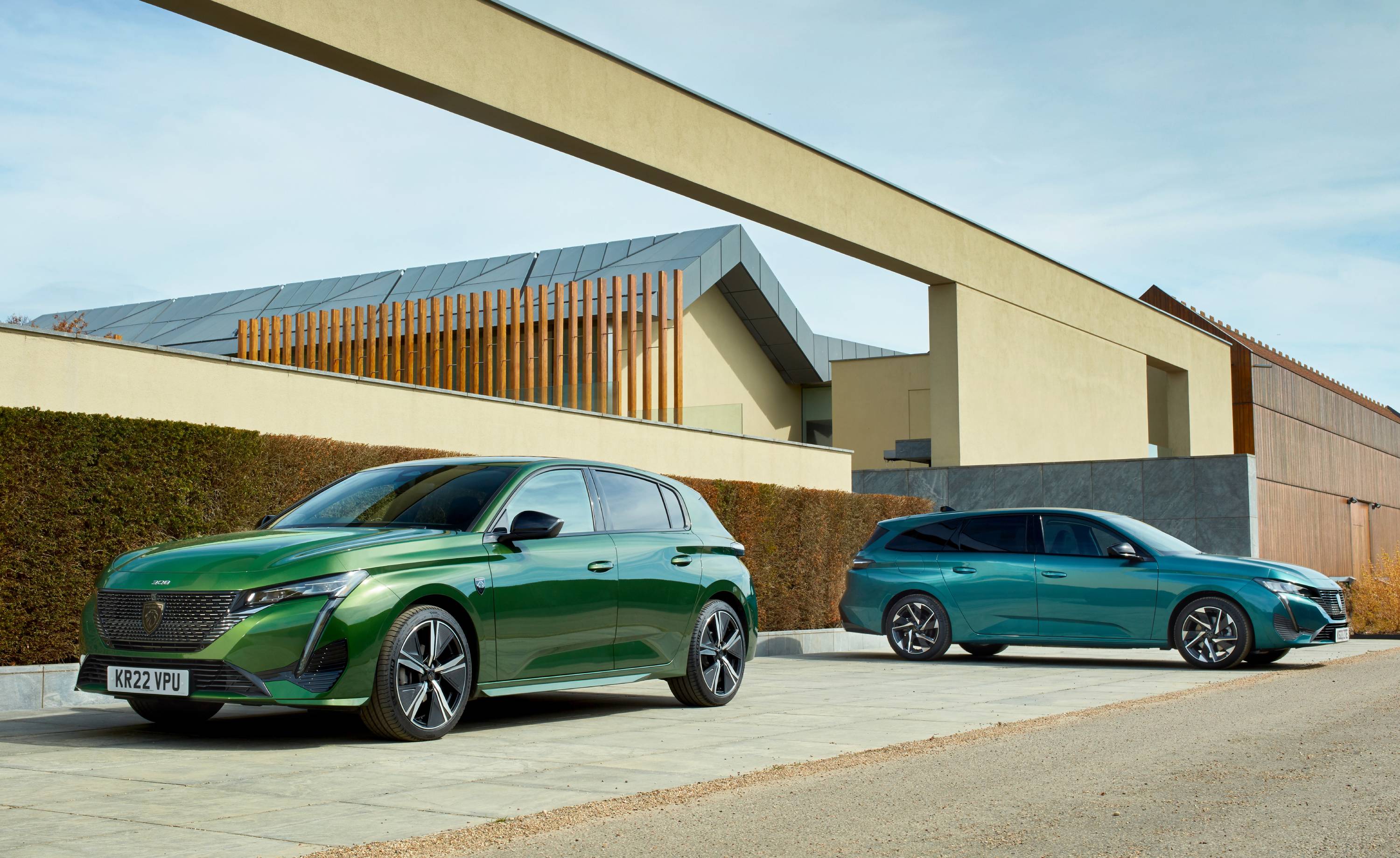 Peugeot’s sparky 308 gets hybrid power and handsome lines
Peugeot’s sparky 308 gets hybrid power and handsome linesThe Peugeot 308 proves that mass-market design needn’t be dull, blending hybrid power with sharp lines and excellent detailing
By Jonathan Bell
-
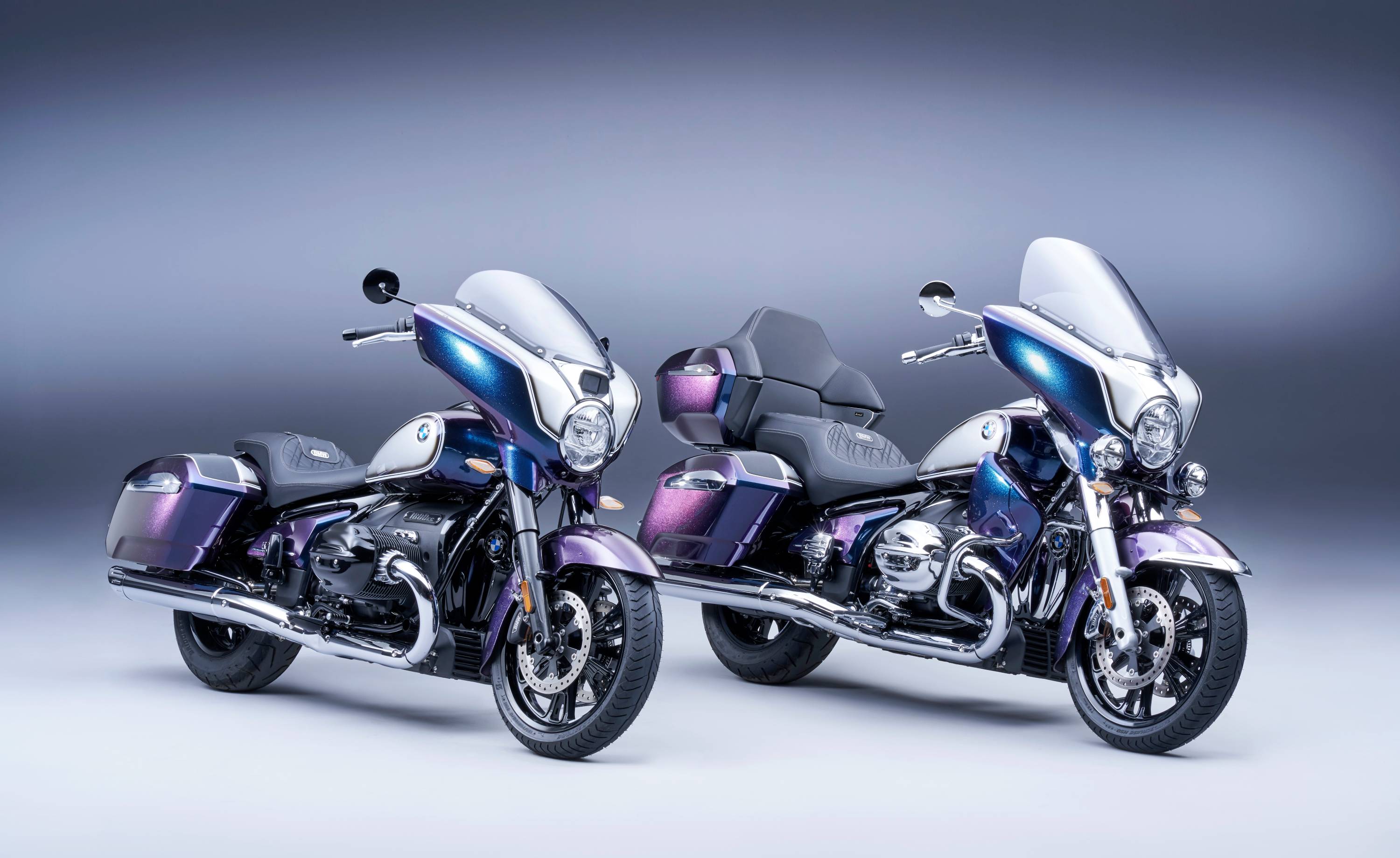 BMW Motorrad brings out the big guns for its newest cruisers
BMW Motorrad brings out the big guns for its newest cruisersBMW Motorrad R 18 Bagger and Transcontinental set the tone for high-voltage cruising with a brand collaboration with speaker specialist Marshall
By George Chapman
-
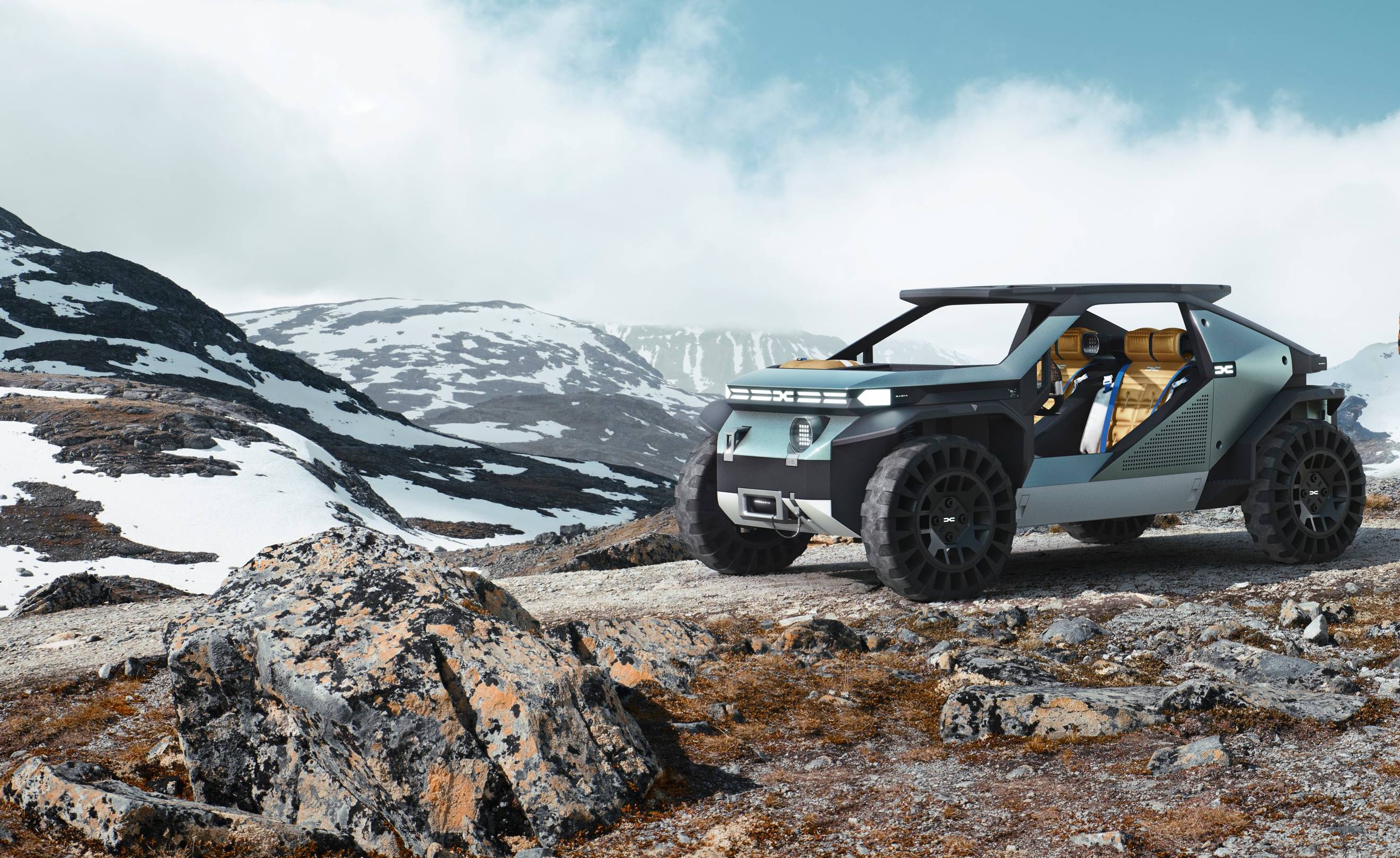 Dacia’s new Manifesto concept is a true outdoor utility vehicle
Dacia’s new Manifesto concept is a true outdoor utility vehicleUtilitarian auto brand Dacia sets a bold new agenda with its Manifesto, a concept car pitched at the active outdoor market
By Jonathan Bell
-
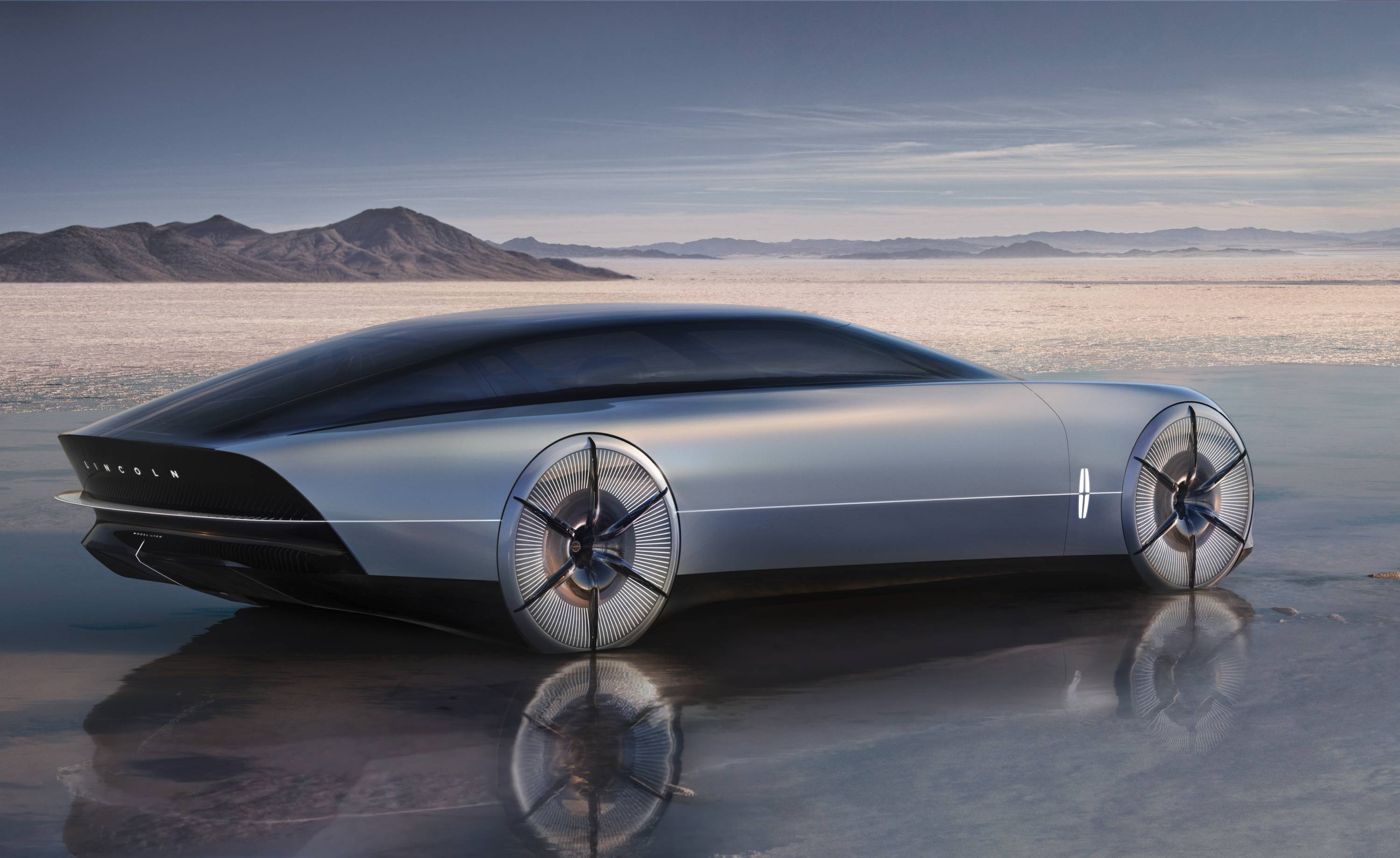 The sun sets on traditional supercars at California’s Monterey Car Week
The sun sets on traditional supercars at California’s Monterey Car WeekMonterey Car Week, the world’s most prestigious car gathering, is showcasing ever-more extravagant special editions, coachbuilt cars and all-new electric concepts. Here are seven key machines from 2022
By Rory FH Smith
-
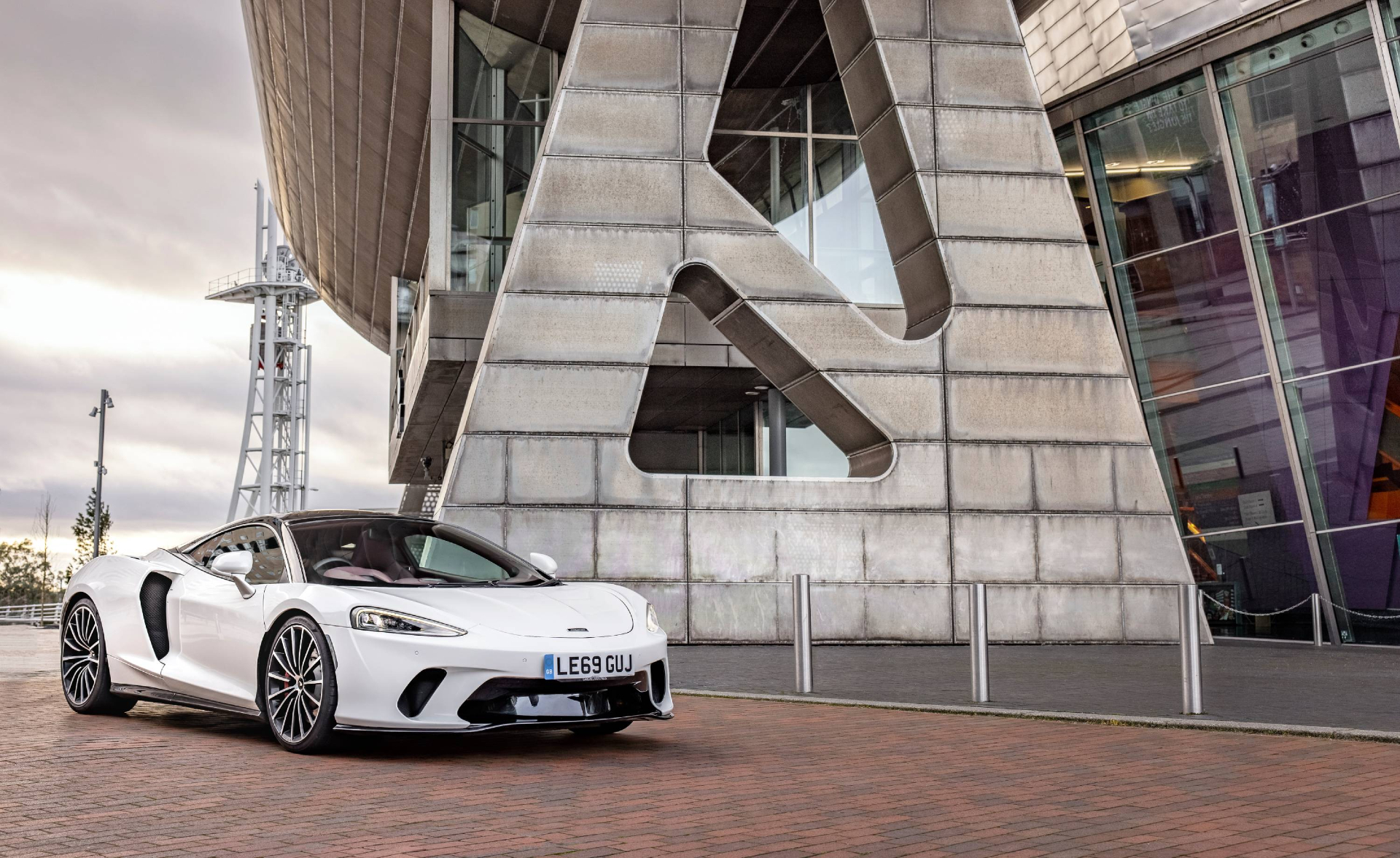 Is McLaren’s GT a sports car, a tourer, or the best of both?
Is McLaren’s GT a sports car, a tourer, or the best of both?The McLaren GT is a capable all-rounder dressed up in svelte supercar clothes. It might also be the last of its type
By Jonathan Bell
-
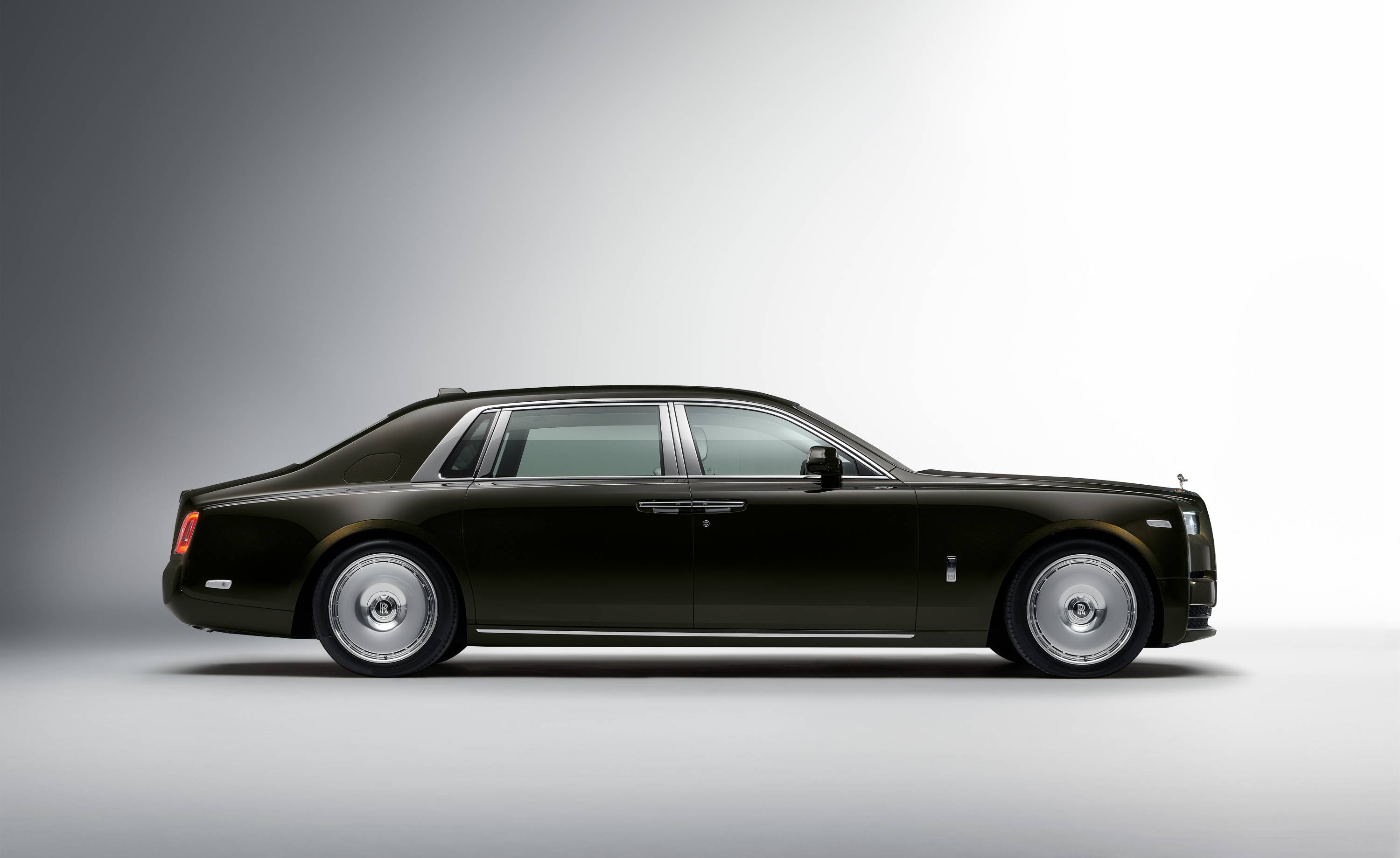 Rolls-Royce puts the Phantom back on its lofty pedestal
Rolls-Royce puts the Phantom back on its lofty pedestalA mid-life refresh ensures the flagship Rolls-Royce Phantom Series II is at the top of its game, a last hurrah for traditional engines before an electrified future
By Jonathan Bell
-
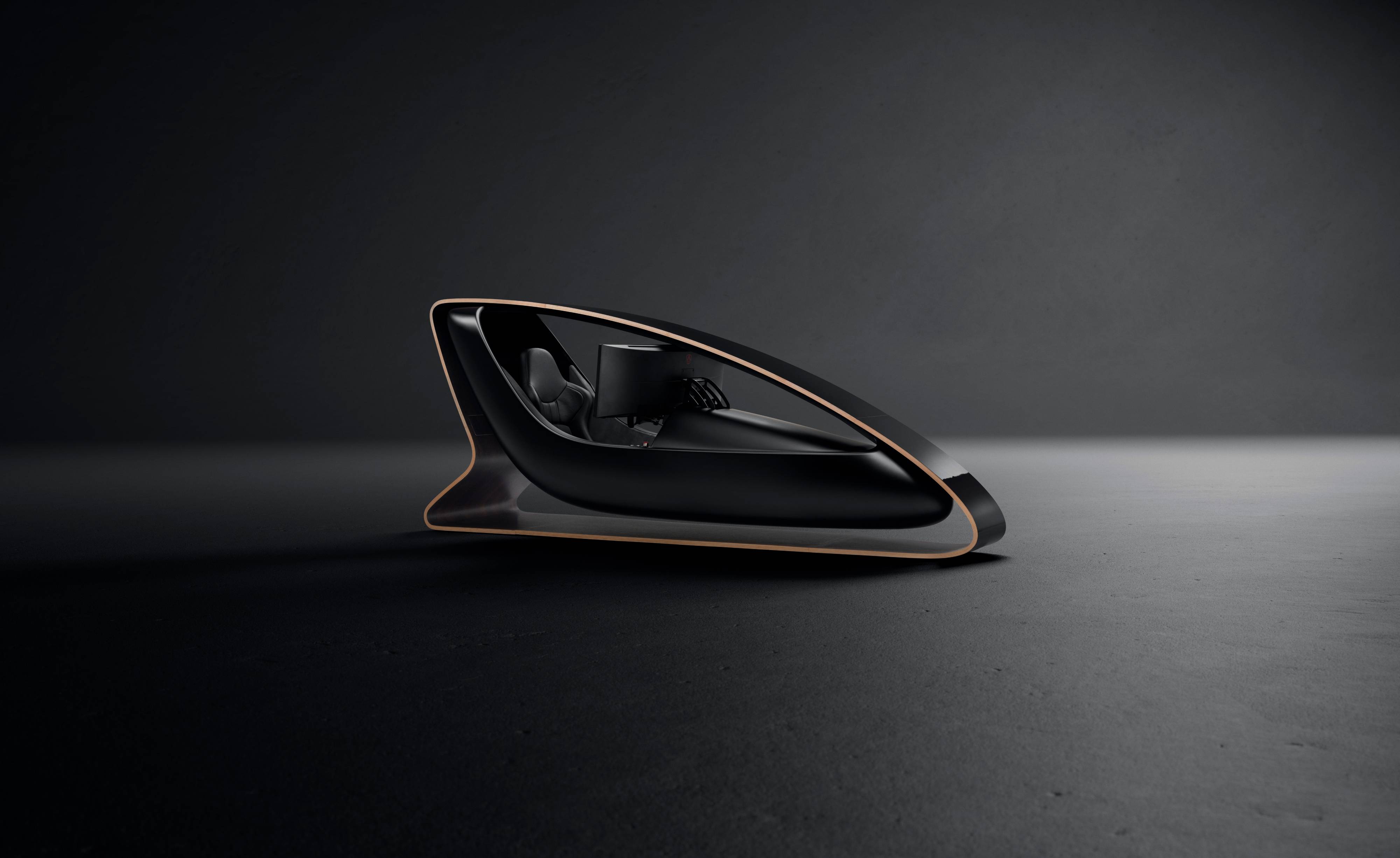 Prodrive’s new racing simulator is shaped by Callum to be front of the grid
Prodrive’s new racing simulator is shaped by Callum to be front of the gridThe racing simulator shapes up – this new design from Prodrive and Callum is honed for the high-end games room
By Jonathan Bell
-
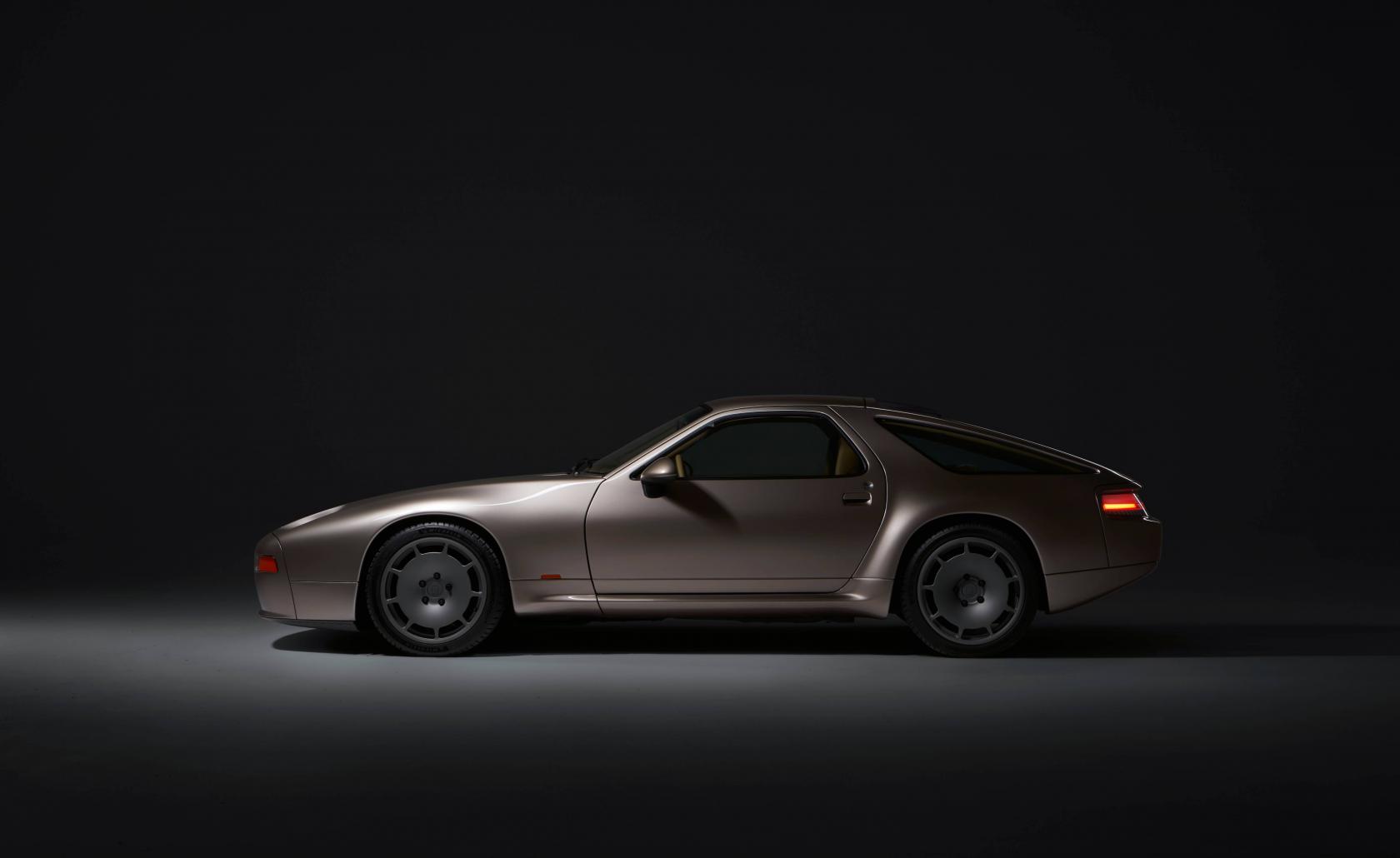 928 by Nardone Automotive: a restomod Porsche with Gallic verve and Italian style
928 by Nardone Automotive: a restomod Porsche with Gallic verve and Italian style928 by Nardone Automotive is a gracefully modernised version of Porsche’s endearingly different 928
By Jonathan Bell